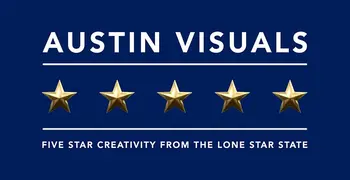
Taking on money can mean your mistakes are bigger. Growing organically can save you from yourself.
Everywhere you turn, there’s talk about startups making it big. Airbnb may be the next tech unicorn. Brave raised $35 million in under 30 seconds by creating its own cryptocurrency. These whirlwind companies never seem to take the slow and steady route. It’s always “How can we launch a company faster, with more money, without seeming to think about what’s being built or for whom?” A recent Bloomberg story — Funding Conditions for Tech Startups Soar to a New Record — is rife with stories of money being thrown at startups just for showing up. Actually, showing up isn’t even a requirement anymore: “Investors came to us,” Dave Hanley, CEO of Tomorrow, an app selling life insurance, told Bloomberg.
But, what if I told you my co-founder and I built an $18-million company with no venture capital funding and a lot of persistence and sweat equity — and that you could too?
Here’s how:
1. Find a pain point in your own life and build a company that will solve that problem.
I didn’t go after the money first. Instead, I zeroed in on a pain point in my own life and knew that others must be struggling with the same issue. I had been working in advertising and marketing and the No. 1 problem we kept hitting up against was finding good music that was easily accessible and well-priced. Production libraries either had bad music or were wildly expensive. We knew we were onto something.
We didn’t know anything about the music industry, though, and we had no case studies. So, we had to sign non-exclusive deals with no terms to get musicians to give us a shot. Over time, we built up our stable of artists and gained name recognition — and now musicians come to us. But, that definitely wasn’t happening in the early days.
2. Don’t take investor money straight out of the gate (or maybe ever).
Too often founders expect others to invest in them, but they don’t want to bootstrap it and pour their own savings into their business. But, how do you know whether your company will succeed with no funding until you try it out? That takes capital.
To give myself some runway on my idea, I sold the only thing I had of value — my house. With $25,000 from the sale, I launched Musicbed, a music licensing business for filmmakers, advertisers and media companies, and very quickly found that other people had the same pain point.
If I had taken investor funding right away, I may have had to prove Musicbed would be viable too quickly and we would have failed before we even got out of the gate. Using my own money allowed us to build slowly.
3. Conquer a niche first.
We launched with just 35 musicians. With a small pot of money and no name recognition, we knew we couldn’t conquer the big-money arenas like TV ads or video games. So, we started with the niches: music for wedding and non-profit videos. We knew these were areas that most companies weren’t paying attention to. Over time, we moved into TV, film and video games, which had always been part of the plan. But, we had to start small.
Welcome to Austin Visuals. We hope you’re enjoying this article! While you’re here, please take the opportunity to browse the visual stories and solutions we’ve created for our clients. If you have an article you’d like us to publish, email us at [email protected].
4. Build patiently — and tap your friends.
If we’d had funding, we could have hired more people right away, lured top-notch musicians, snagged our ideal customers and created share-worthy marketing from Day One. But, I had seen enough crash-and-burns to know I wanted to be the type of company that soared — even if it took a bit longer to reach the sky.
It took six years — and we’re still growing. Some of our biggest wins came from sheer willpower and strategic meetings. I had a good friend at a record label in Nashville who represented four bands and I begged him over breakfast to let me promote his musicians (pancakes win every time).
When there isn’t funding, friends are more important than ever to provide connections, networking and help along the way.
5. Keep control of your company.
What many startups don’t talk about is that VC funding means losing control of the company cash flow. Having no investors — or a bank to pay down — has actually become a competitive advantage for me. I’m not saying this will work for everyone, but being my own boss has made me feel like there’s a safety net under me at all times.
The danger of investment is that investors want a return. VC-funded startups have a board that’s urging them to grow — even when growth may not always be what’s best for the company. I can look at the market and decide what I want to conquer next. When I want to hit the pedal, I go. I have no one trying to cash out.
More money can mean bigger mistakes. Every time I consider taking on funding, a mistake happens and I think: How big would my mistake have been if we had $10 million? There is such a thing as growing too fast. Villi Iltchev, a partner at August Capital, recently tweeted: “Over the next couple of years we will be reminded how overcapitalization kills startups.” Growing organically has saved us from ourselves.
If I was starting out today, I wouldn’t be the CEO of a company. At least not in the music licensing industry. When we launched, there were only three competitors and two weren’t very strong. With very little money, you could gain a foothold. The landscape looks a lot different today.
But, we’ve still found a way to stand out and grow. Today, we have 800 artists, 50 composers and a team of 50 and we still have zero outside funding. I wouldn’t have it any other way.
Read the original article here
Austin Visuals is a full-service 3D, 2D, Motion Graphics, Live Video, E-learning, Digital Publication studio. We’ve been creating digital magic nationwide for a decade. We work with companies of all sizes from startup to standout. Call us for a free consultation. 512-591-8024 [email protected]





